Search
Remove Ads
Advertisement
Summary 
Loading AI-generated summary based on World History Encyclopedia articles ...
Search Results
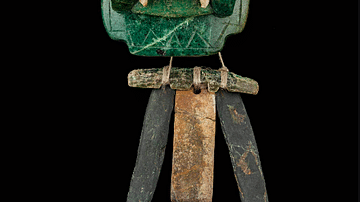
Article
Jade in Mesoamerica
Jade was a highly-esteemed material in many Mesoamerican cultures, making it a valued regional trade good and first choice for objects of religious and artistic value such as masks, ceremonial axeheads, figurines, and jewellery. Jade, because...
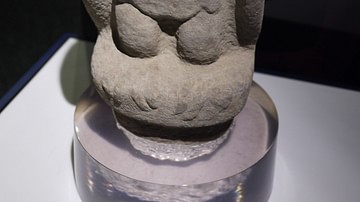
Interview
Interview: Costa Rica's Jade Museum
The Jade Museum (Spanish: Museo del Jade y de la Cultura Precolombina) in San José, Costa Rica houses the world's largest collection of ancient jade from the Americas. With nearly 7,000 pieces in its collection, the artifacts at the Museum...

Article
Liangzhu Culture Jade
Jade artifacts and icons are almost synonymous with the Chinese culture going back thousands of years. Jade (nephrite) was first worked into recognizable objects c. 6000 BCE during the period of the Houli Culture (c. 6500 - c. 5500 BCE...
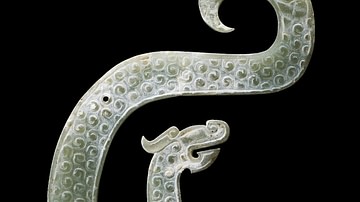
Article
Jade in Ancient China
Jade (nephrite) was regarded as the most precious stone in ancient China, and it symbolised purity and moral integrity. Prized for its durability and magical qualities, the stone was laboriously carved and polished into all manner of objects...
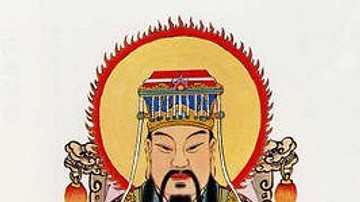
Definition
Jade Emperor
The Supreme August Jade Emperor is the supreme deity of Chinese tradition and is otherwise known as Yuhuang Shangdi (Yu-huang Shang-ti), Yudi (Yu Ti) or Mr. Heaven (Lao-t'ien ye). He governs the cosmos and resides in a magnificent palace...
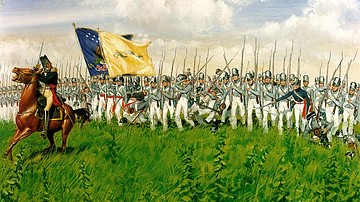
Article
Battle of Chippawa
The Battle of Chippawa (5 July 1814) was a major battle in the War of 1812, in which a US army proved its newfound discipline by defeating British regulars during the Americans' third attempted invasion of the Niagara Peninsula. Though the...
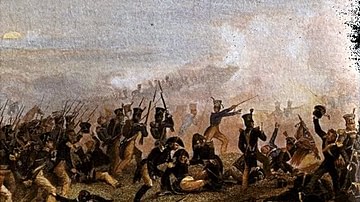
Article
Battle of Lundy's Lane
The Battle of Lundy's Lane (25 July 1814) was one of the bloodiest battles of the War of 1812. Fought near the location of present-day Niagara Falls, it saw a US army under Jacob Brown clash with a British force under Gordon Drummond. Although...
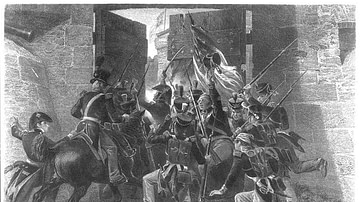
Article
Battle of Fort George
The Battle of Fort George (27 May 1813) was an important battle in the War of 1812. It saw the United States launch a successful amphibious assault to capture Fort George, the main British outpost on the Niagara frontier. The Americans, however...
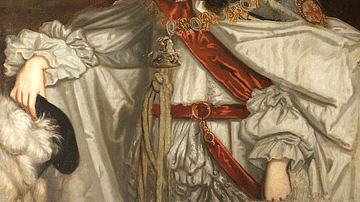
Image
James Scott, Duke of Monmouth
A c. 1682 portrait by Peter Lely of James Scott, Duke of Monmouth (b. 1649). Monmouth was the illegitimate son of Charles I of England and led the failed Monmouth Rebellion against James II of England. He was executed for treason in 1685...

Image
Winfield Scott, 1814
Winfield Scott as a major general in 1814, during the War of 1812. Portrait by David Edwin and Joseph Wood, 1814.
Library of Congress, Washington, D.C.